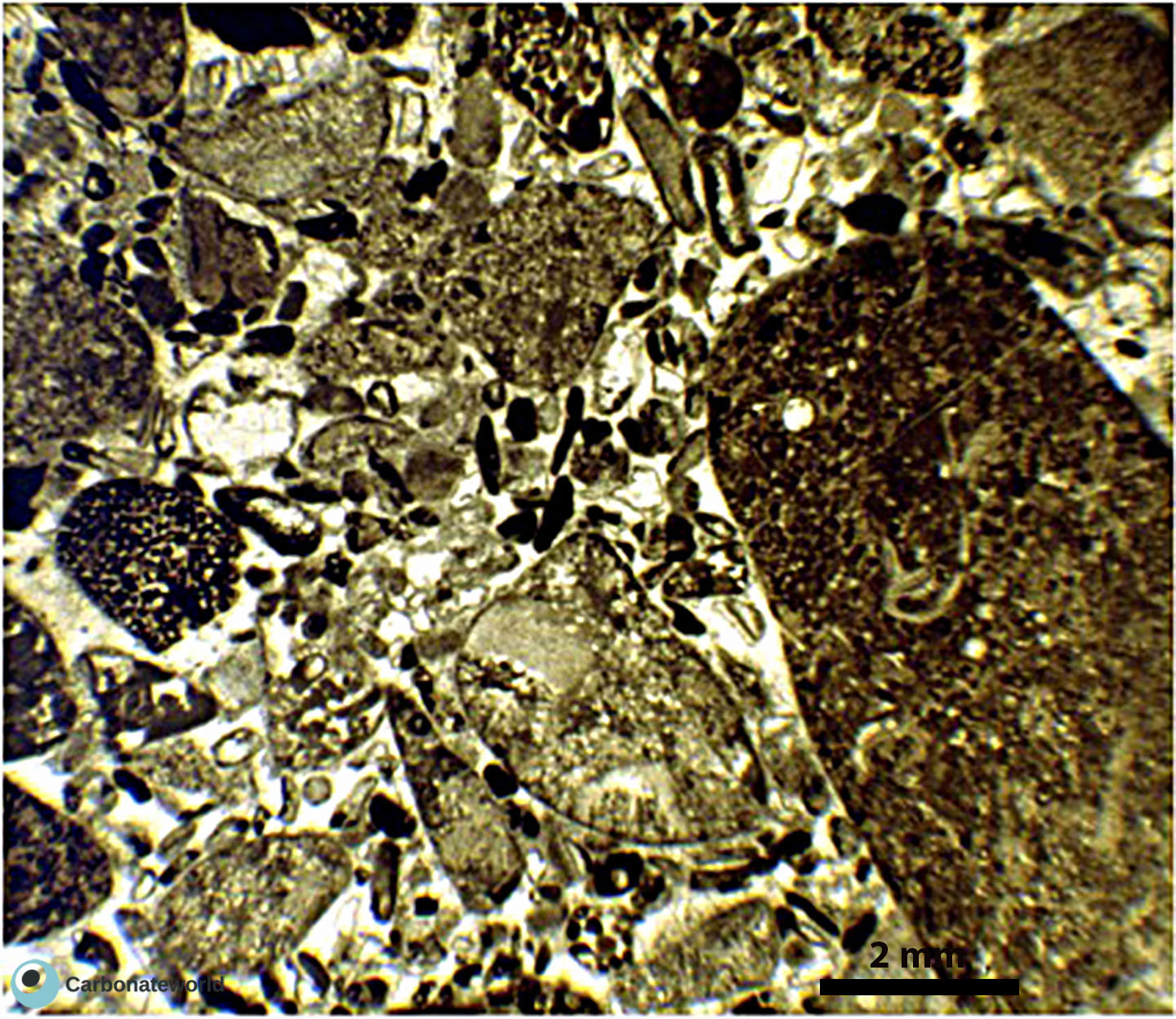Extraclasts/Lithoclasts
1. Lithoclasts
Ooidal packstone with micritized ooids resedimented in basinal setting including angular carbonate lithoclast of peloidal grainstone to packstone likely deriving from older shallow-water carbonate facies.

HIDE INFO

SHOW INFO
2. Lithoclasts
Skeletal grainstone with crinoids and fragments of bryozoans with a lithoclast of undetermined composition containing red argillaceous matrix.

HIDE INFO

SHOW INFO
3. Lithoclasts
Grainstone with oncoids (with at nuclei micritized ooids) and peloids cemented by blocky sparite during burial including a carbonate lithoclast of ooidal grainstone with isopachous rims of fibrous cement.

HIDE INFO

SHOW INFO
4. Extraclasts
Skeletal packstone containing common quartz grains associated with barnacle and bryozoan fragments, coralline algae oncoids (rhodoids) and a rounded extraclast.
Thin section kindly provided by T. Geel, Vrije Universiteit, Amsterdam

HIDE INFO

SHOW INFO
5. Extraclasts
Packstone to wackestone with planktonic foraminifers and Inoceramus fragments indicative of Late Cretaceous age with a wackestone clast containing calpionellids indicative of an older age (latest Jurassic-earliest Cretaceous).
Thin section kindly provided by T. Geel, Vrije Universiteit, Amsterdam

HIDE INFO

SHOW INFO
6. Extraclasts
Lower Jurassic grainstone-rudstone rich in extraclasts of eroded Carboniferous Limestone. This is a transgressive rocky shoreline deposit. Field of view approximately 13 mm.
Lower Jurassic, Sutton Stone, Ogmore by Sea, South Wales, UK

HIDE INFO

SHOW INFO

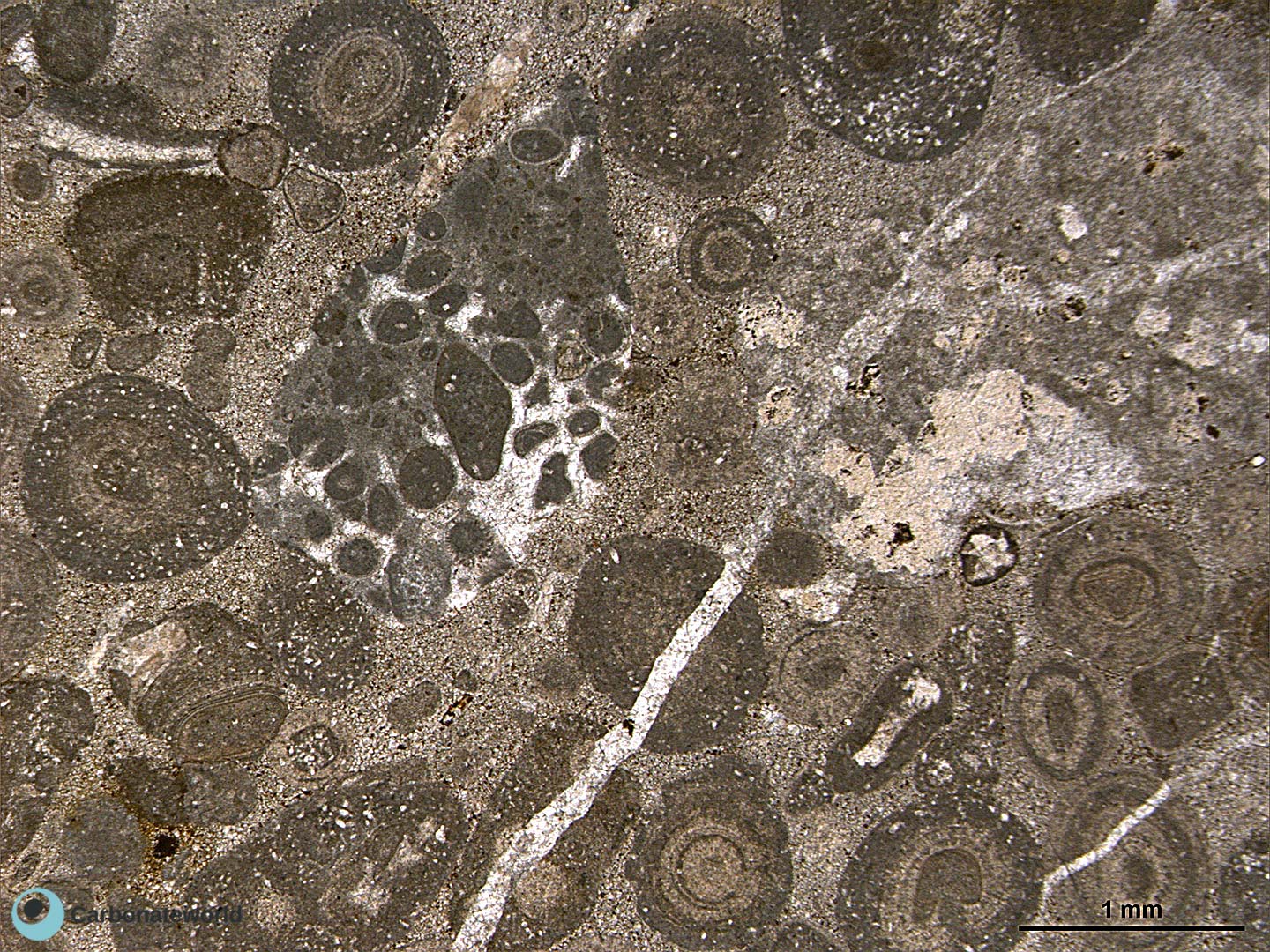

Resedimented ooid

Angular lithoclast
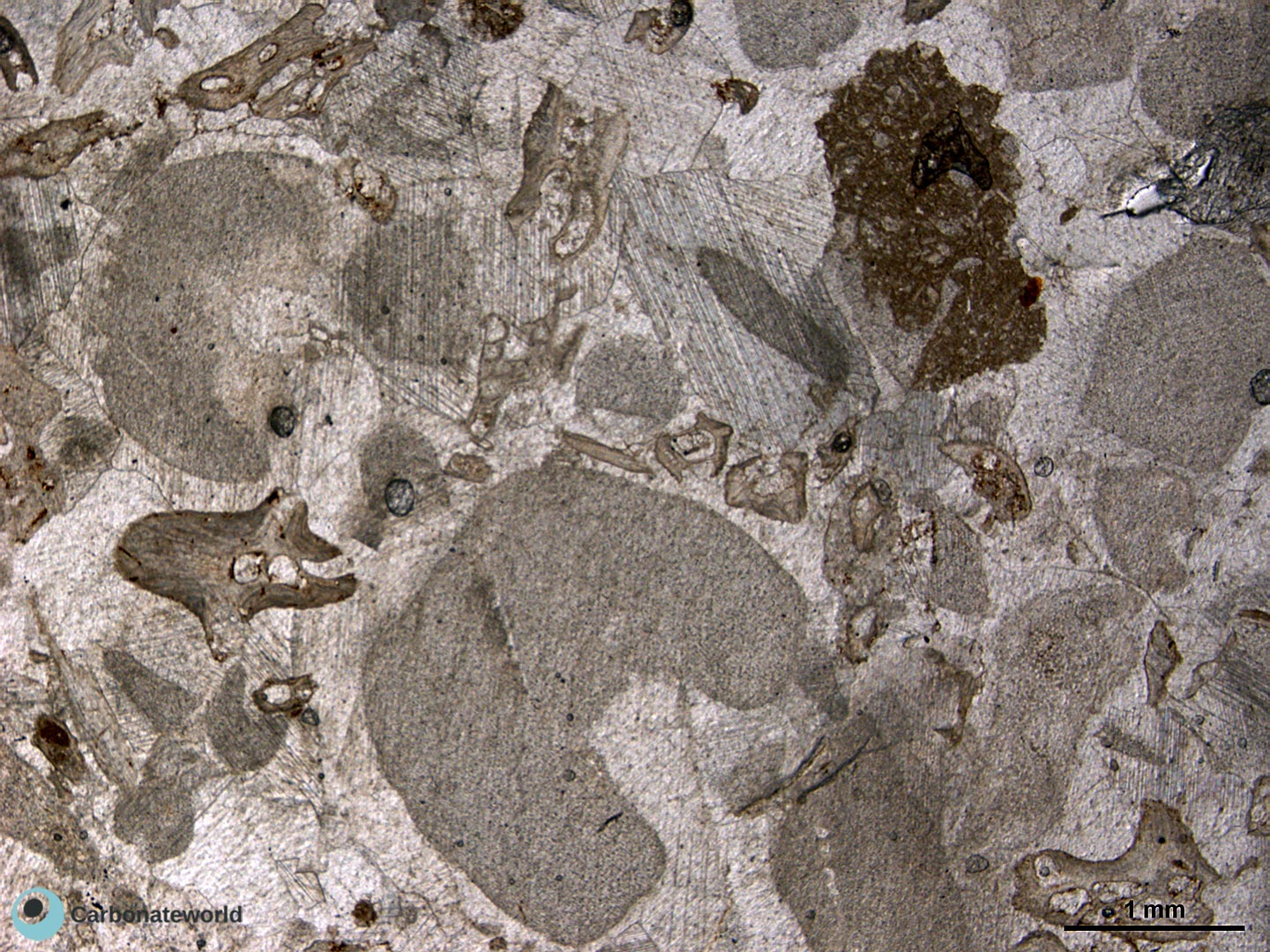

Crinoid ossicle

Extraclast

Fenestellid bryozoan
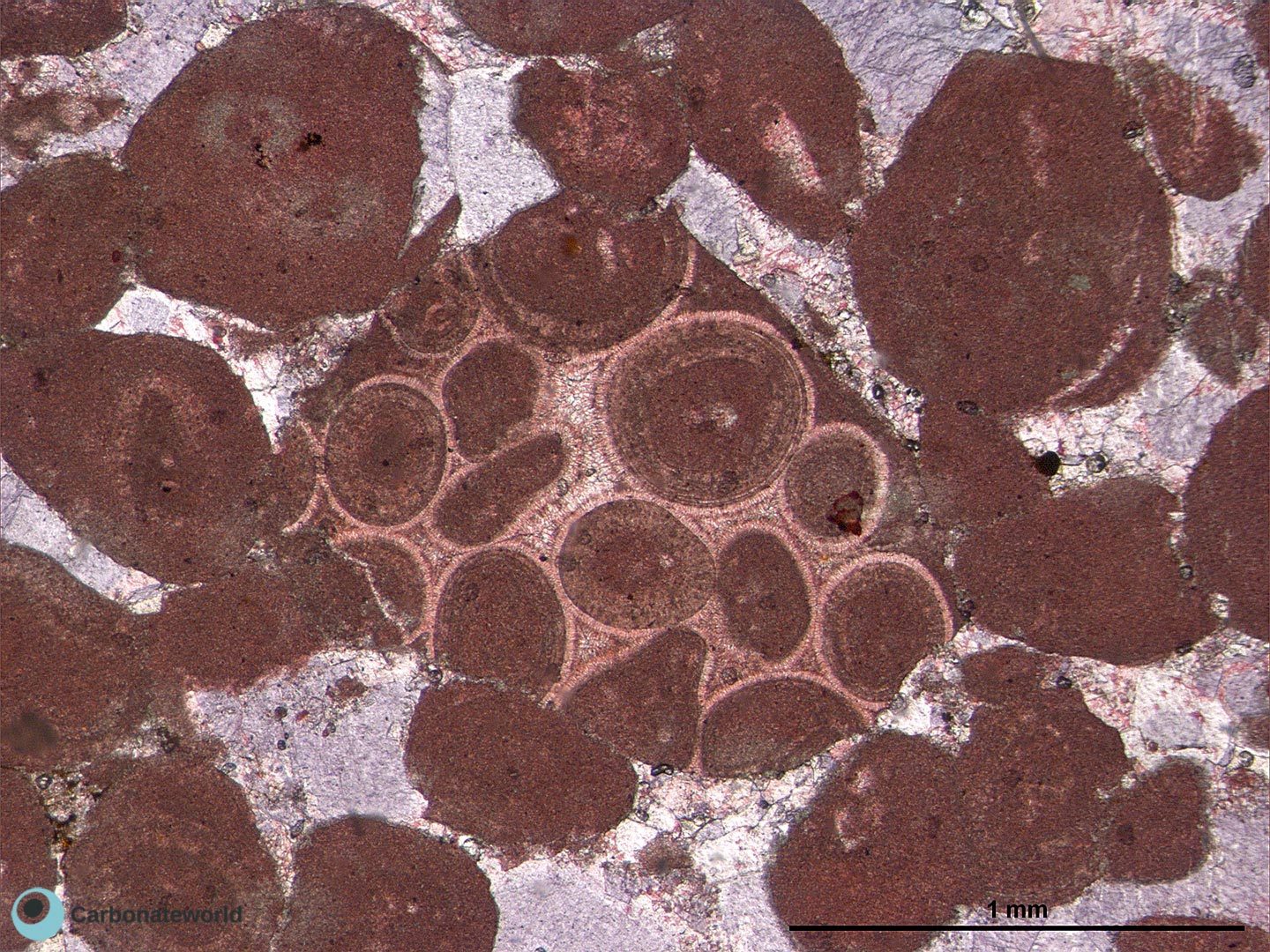

Lithoclast of ooidal grainstone
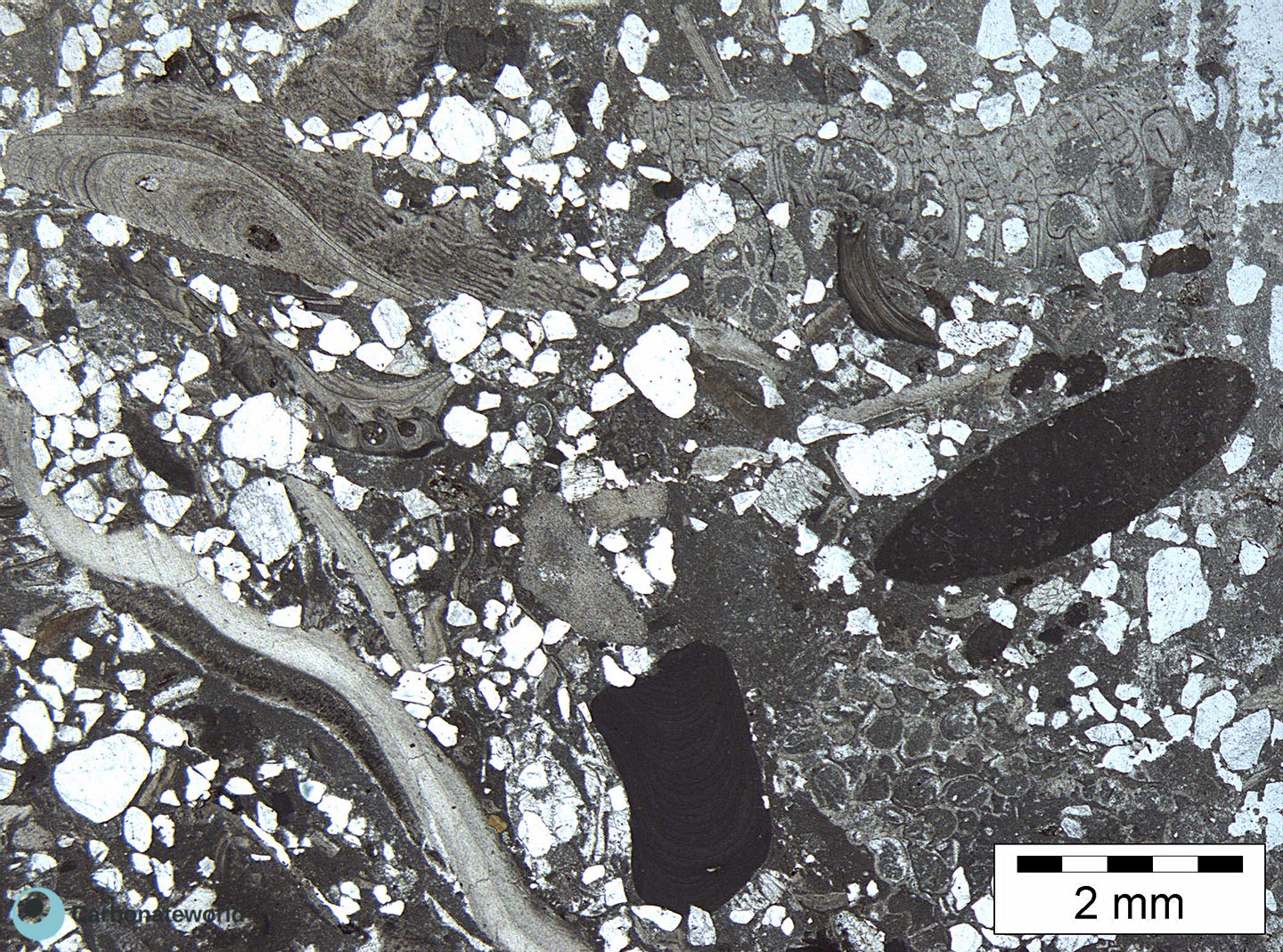

Barnacle

Bryozoan

Extraclast
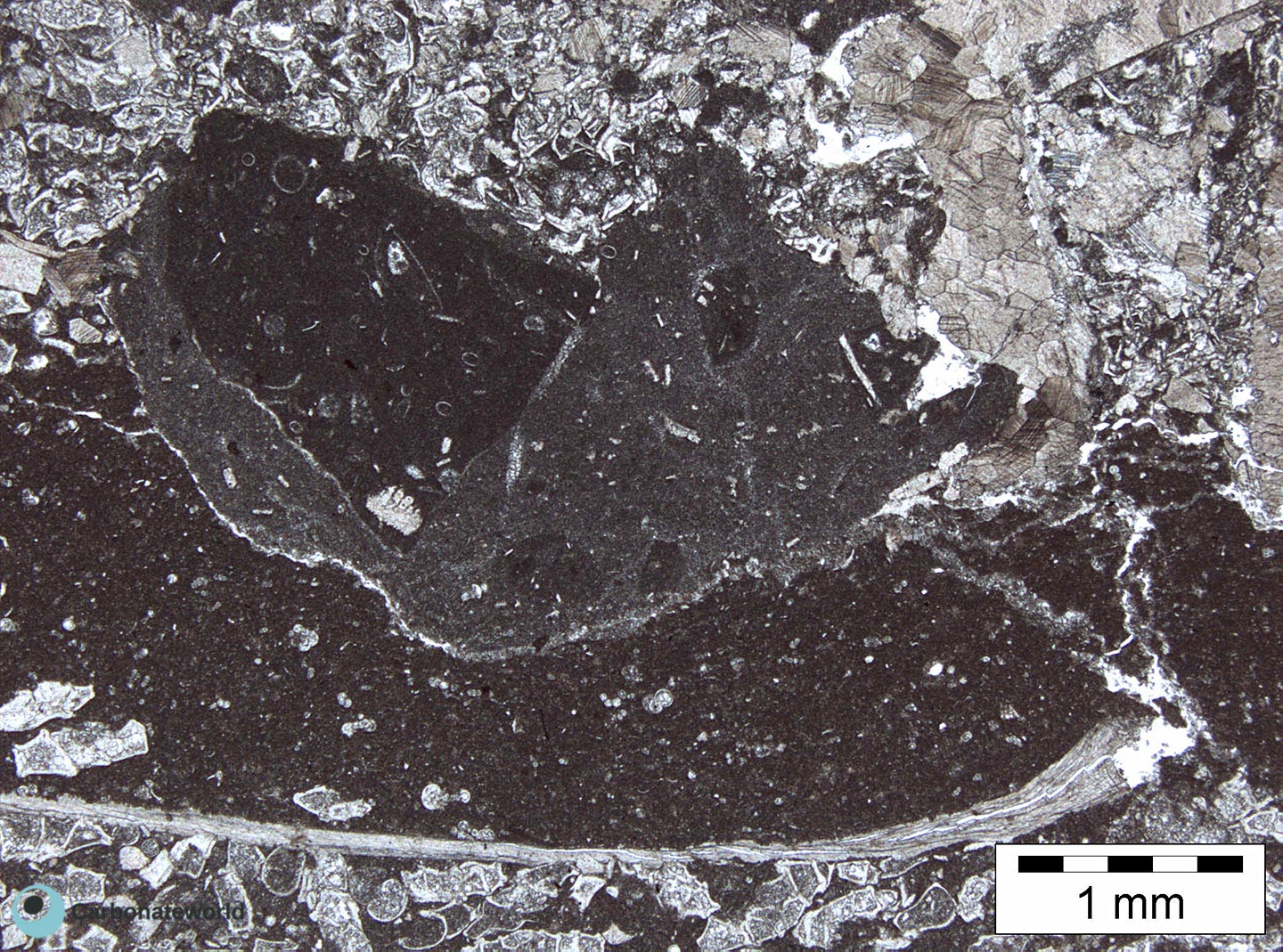

Extraclast
